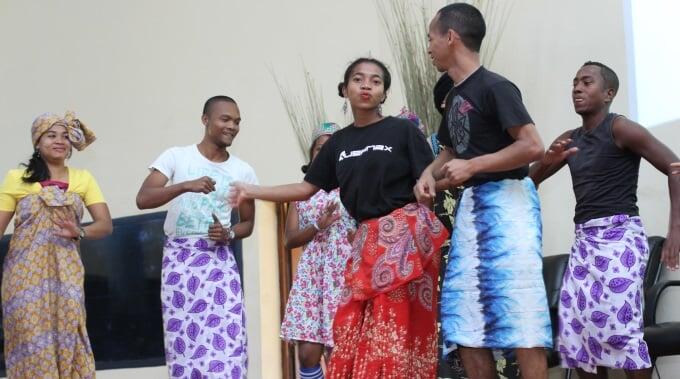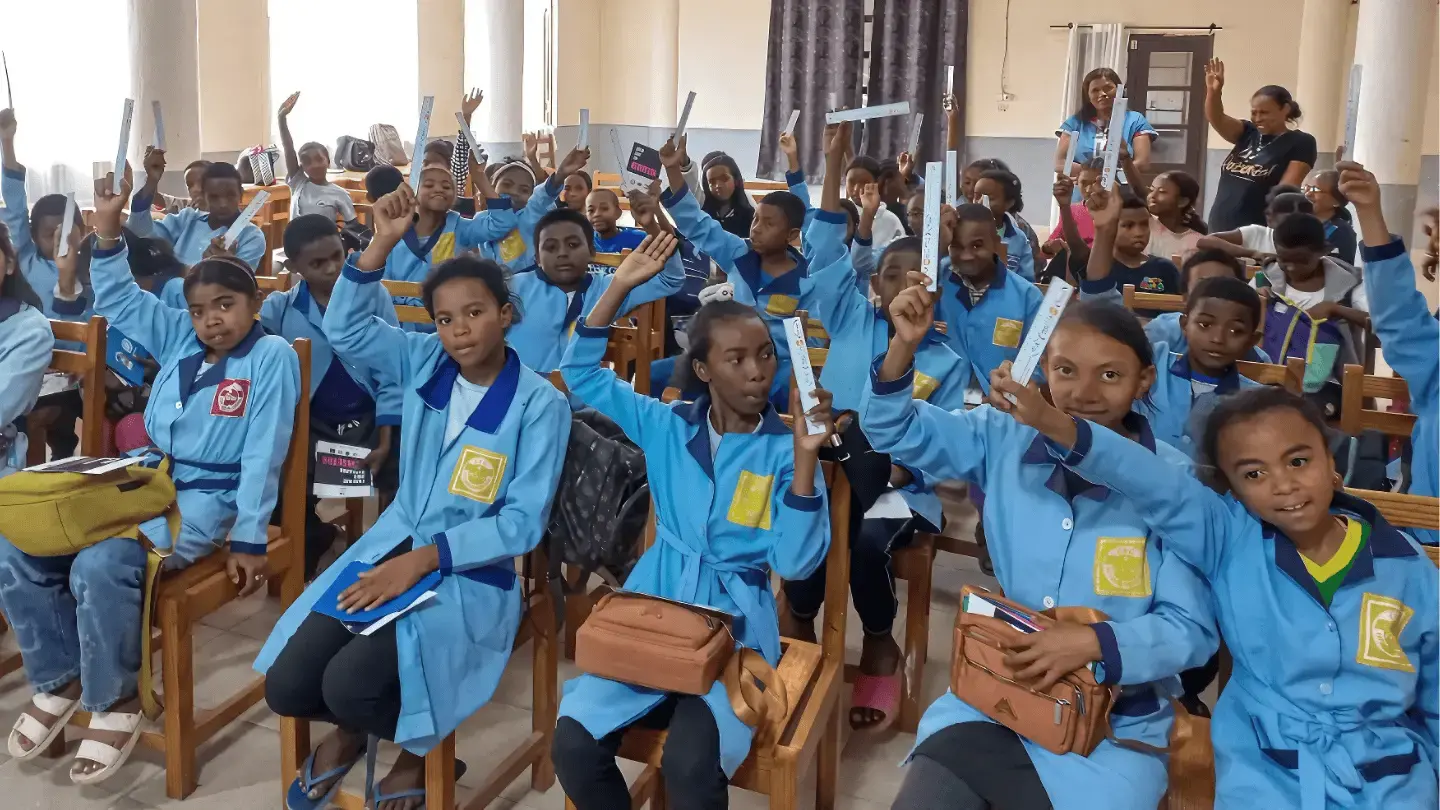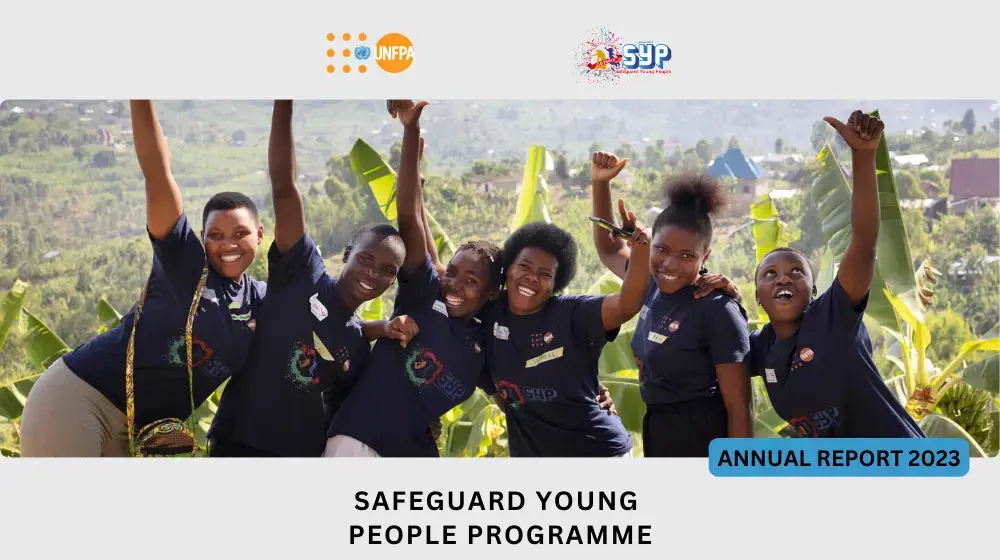“Be bold and move forward. The responsibility is yours first and foremost – I encourage you to be responsible young leaders. I count on you!”
This call was made by the Prime Minister of Madagascar, Kolo Roger, at the National Youth Symposium 2014, which was organized by UNFPA in partnership with the Ministry of Economy and Planning and the Ministry of Youth and Sports, as well as other UN agencies working on youth issues in Madagascar.
The Prime Minister highlighted the importance of youth leadership for the development of the country. The Government would take responsibility for youth development, an area in which the state had been absent in recent years, he admitted.

More than 350 young people from all over the country gathered for the symposium to express their concerns and aspirations for the future. “I hope the symposium will contribute to improving the lives of young people in Madagascar,” said Honoré Rafalimanana, 19.
The event was officially opened by the Prime Minister, Kolo Roger, on 1 July and was attended by several ministers, the UN Resident Coordinator in Madagascar, Fatma Samoura, UNFPA Representative in Madagascar Agathe Lawson and the UNFPA Representative in Mozambique, Bettina Maas.
Representatives from the Inter-Ministerial Committee on Young People and numerous Civil Society Organizations participated, as well as young people from the neighbouring islands Comoros, Seychelles and Mauritius.
Increasing inclusion of young people
The discussions covered the main concerns of young people in Madagascar: health and adolescent sexual and reproductive health, education and training, employment and entrepreneurship, environment and sustainable development, violence and substance abuse, and political inclusion and youth participation.
The participants jointly formulated recommendations that will serve as guiding principles for the revision of the National Youth Policy in Madagascar.
Speaking at the opening ceremony, UNFPA Representative for Madagascar Agathe Lawson said she hoped the symposium would lead to an increased level of inclusion of young people in the development process, through establishing a constructive dialogue between young people and decision-makers.
“As young people, you are here to make your voice heard and we as adults have the obligation to listen, because you are the foundation of Madagascar’s future. We will continue to strengthen our contributions to the advancement of adolescents and youth in Madagascar,” she said.
A youthful population

The population of Madagascar is young – it is estimated that 62 per cent of its 22 million inhabitants are below 25 years of age and 32 per cent are between the ages of 10 and 24. Young people face a great number of challenges, particularly when it comes to health, education and socio-economic inclusion.
Madagascar has one of the world’s highest child marriage rates; one out of two girls will be married or in union before their eighteenth birthday, despite the fact that a new law was passed in 2007, which set the marriageable age at 18 for both girls and boys. Child marriage is strongly associated with adolescent pregnancy, which affects one in three girls in Madagascar and has devastating consequences for their reproductive health.
Teen pregnancies the leading cause of deaths
Pregnancy and childbirth are the leading cause of adolescent deaths in the country. And with high rates of school dropout, the majority of adolescents and youth fail to complete quality education. The weak non-formal education system perpetuates illiteracy among young people.
Adolescents and youth are also most affected by the employment crisis in Madagascar due to their lack of qualifications; consequently, many young people are either unemployed or trapped in low-quality jobs that may be hazardous to their health.
This demonstrates the importance of organizing a National Youth Symposium where young people and decision-makers could discuss priorities for the future. Honoré Rafalimanana, agreed with the event’s key recommendations: “I think that the symposium’s recommendations take account of the needs of young people and I hope that they will contribute to sustainable development for Madagascar’s youth.”
The recommendations included two points on health and adolescent sexual and reproductive health:
- Develop health services tailored to the specific needs of young people, review and formalize standards for youth-friendly services, elaborate a policy on financial support for young people seeking health care, and subsidize health care in order to adapt services to young people.
- Strengthen health education: include health and sexuality education in school curricula from primary school. Develop an educational programme outside formal structures by integrating sensitization on health issues in youth activities.
~ Borghild Berge and Laura Denis, UNFPA Madagascar





